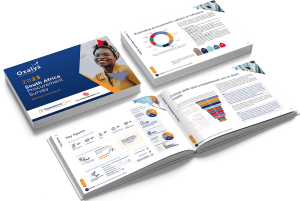 National Treasury has highlighted that an important aim of the Public Procurement Bill is to use the procurement system to advance economic opportunities for previously-disadvantaged people, women, the youth and people with disabilities, and their business enterprises.
National Treasury has highlighted that an important aim of the Public Procurement Bill is to use the procurement system to advance economic opportunities for previously-disadvantaged people, women, the youth and people with disabilities, and their business enterprises.
While this is the case, Dr Faith Mashele (FCIPS, MBA, PhD) suggests that there is an opportunity to improve and reshape the existing South African procurement landscape, in this month’s SmartProcurement.
The much-anticipated Public Procurement Bill was released for public comment earlier in 2020 and commentary was extended until the end of June 2020.
During the commentary period, various platforms in business and society were initiated: these invited discussions, the sharing of expert information and public debate around the review of the Draft Public Procurement Bill. According to National Treasury, the primary aim of the Bill is to regulate public procurement and to prescribe a framework for procurement policy, as envisaged in Section 217 of the Constitution of the Republic of South Africa (1996). Furthermore, the Bill is intended to correct the current fragmentation of public procurement regulations by proposing a single regulatory framework for procurement relating to national, provincial and local government as well as to state-owned entities.
Many opinions and strong sceptical views have been presented around the impact of the Public Procurement Bill, particularly concerning uplifting the marginalised and increasing the participation of emerging enterprises in public-sector procurement.
Here are three key policy proposals:
1. Leveraging public procurement spend for socio-economic development
It is important to highlight the immense contribution that can be made through public procurement spend, which is estimated at R1.22-trillion a year in South Africa. This figure is equivalent to about 30% of the gross domestic product (GDP) in many developing economies and thus holds the possibility of addressing a myriad of socio-economic challenges, particularly in the face of the COVID-19 pandemic. For this reason, the Draft Public Procurement Bill presents an opportunity to increase opportunities for participation by emerging enterprises, particularly black-owned and women-owned enterprises.
2. Addressing imbalances through preferential procurement
One of the biggest criticisms around the Bill is the fact that many critical aspects, such as provisions for preferential procurement, have not been addressed adequately and have been left to the regulations which will be prescribed by the Minister of Finance at a later stage. These omissions are largely frowned upon by business and society as the procurement space is inherently a heavily contested space prone to litigation. It is, usually, left to the courts to decide on matters that are not clear and open to interpretation.
To this end, it is imperative that the Bill must clearly set out empowering provisions for preferential procurement as well as refine the selection criteria for awarding procurement contracts.
3. Rethinking the game plan for inclusive and sustainable procurement
The African Union’s Agenda 2063 implores us to envision “a prosperous Africa, based on inclusive growth and sustainable development”. Most importantly in the context of socio-economic development, the Agenda calls for “an Africa whose development is people-driven, relying on the potential offered by African people, especially its women and youth, and caring for children”. To that end, there must be a concerted and coherent approach towards development. Furthermore, public-sector procurement must be premised on creating an enabling environment that will allow for meaningful and deliberate economic transformation.
In conclusion, National Treasury has been bold and open to reintroducing positive bias in procurement through mechanisms such as setting aside contracts for designated groups, i.e. black people, women, the youth and people with disabilities. This is certainly a step in the right direction which must be bolstered further with clear policy provisions for preferential procurement. Notably, it is important to highlight that the current procurement reforms and Public Procurement Bill is an opportunity to reshape procurement in the current South African context. Similarly, the Bill, as a single regulatory framework for procurement, should also maintain a balance between efficiency and compliance.
In a like manner, after going through the Public Procurement Bill, we should be asking the question, in the wise words of the world-renowned activist Winnie Byanyima: “What is growth for it not to help ordinary people thrive?”


























